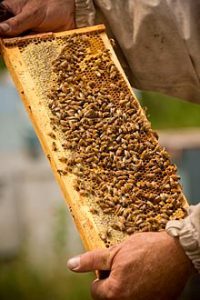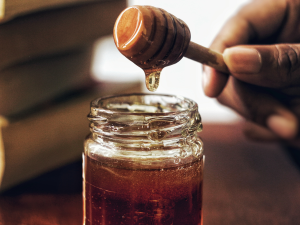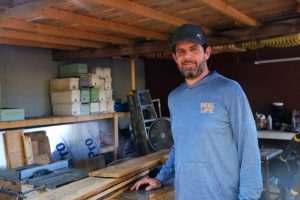Disease and climate change put pressure on bees and their keepers on Vancouver Island: Apiary inspector.
 Without bees, there is no food, so keeping hives healthy is of utmost importance. That job is becoming more difficult thanks to an outbreak of disease and the effects of climate change.
Without bees, there is no food, so keeping hives healthy is of utmost importance. That job is becoming more difficult thanks to an outbreak of disease and the effects of climate change.
That’s where special apiary inspectors come in, who check on the health of keepers’ bees to help prevent the spread of honeybee diseases and pests.
Marie Cairns, a bee keeper who runs a small apiary in the Cowichan Valley, had her hives checked on Friday by Tara Galpin, an apiary inspector for South Vancouver Island and the Gulf Islands.
“First of all, it was all about the pollination, but then the more you learn about bees the more fascinating they are,” Cairns said.
Cairns has been bee keeping in the valley for nine years. She got her inspection for free, as any bee keeper can, so she can sell some of her hive.
“You have bees and you want your own bees to stay healthy, so you want their bees to be healthy because they fly and bring back disease if you don’t or mites or anything else,” she said.
Galpin is looking for a few different diseases and pests. One that comes up often is the varroa mite, a parasitic mite that feeds on honey bees and causes a disease called varroosis.
“They feed out the fat body of the bee, so it’s like if we had the size of a rat on our human body feeding on our liver,” Galpin explained.
Unfortunately, Cairns’ bees had too many mites. “My first time failing,” she said.
But this experienced bee keeper is unfazed, and will work with the inspector to apply the appropriate treatment.
Galpin says unpredictable spring weather due to climate change—that have been cooler and damper—is helping to spread fungal disease and doesn’t allow bees to forage for food when they need it most.
Keeping bees in good shape is important, as along with other native pollinators they play a key role in sustaining B.C.’s food system, and contribute an estimated $250 million to the province’s economy.
The inspector says losses this year in bee colonies is between 30 to 40 per cent—climate change and the spread of disease keeping the pressure on bees and their keepers.
“More than anything, we need diversity of plants for our bees to forage from and diversity in our food landscapes,” she said.
Importing bees plays a major role in maintaining the bee population across Canada, and combined with the work of inspectors like Galpin, they’re ensuring bees keep food on our table.
We are here to share current happenings in the bee industry. Bee Culture gathers and shares articles published by outside sources. For more information about this specific article, please visit the original publish source: Disease and climate change put pressure on bees and their keepers: apiary inspector | CTV News








